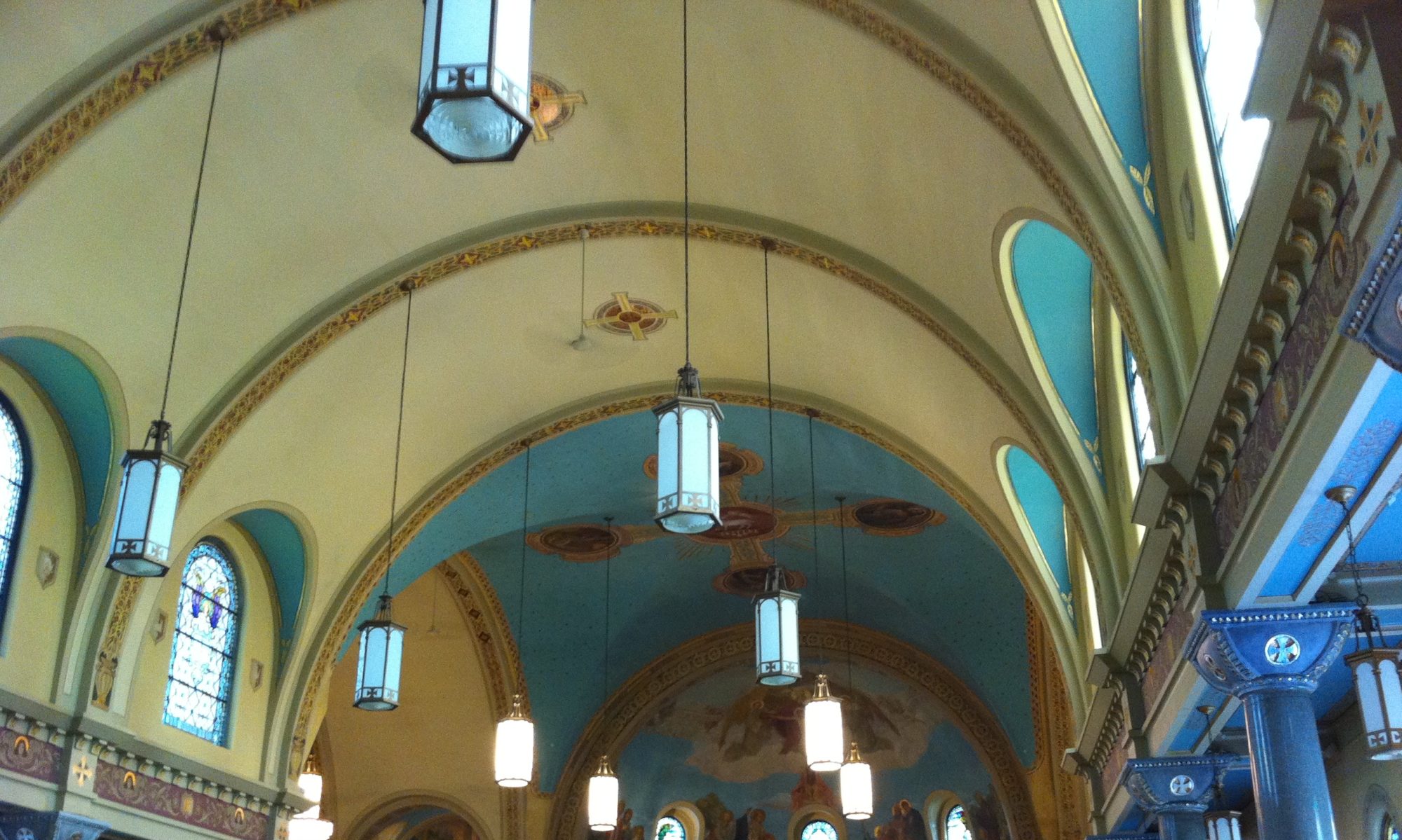Date: 2/9/14
Church name/type: White Couch Albany, a non-denominational church with origins stemming from a mixture of Southern Baptist and Assemblies of God groups
Pastor: Pastor Mike
Style of worship: A message about communion was bookended by music. I’m told this format is not usual and that it was light on music this time.
Overall Impression: neutral
Thoughts:
I had heard this place was fresh and new and different, so I had some expectations going in; however I just didn’t get any sort of vibe from the place. It just felt kind of flat. Maybe it’s the new building, or the snowy lack of attendance. Or the fact that I came at the end of the year and found the doors closed. Yeah I tried to attend this church once before at the very end of the year. Unfortunately for me they had no service that day, and no notice on the website to explain this. They couldn’t even leave a note on the door? So maybe I was annoyed with them from the get-go. I’ll start again and try to examine what I did find at this church.
On arrival in my car I found several young adults in the parking lot with shovels. They motioned me inside with smiles. I had come at exactly 11am, but the service was not quite starting and I took a seat. The rest was rather straight-forward. We exchanged high-fives at greeting time rather than the standard handshake. We had communion together by filing up front. That was just a little weird because we were instructed to come up as we felt led…no one really went out of order however.
The main point of this service was the sermon. It was really a description of communion and what communion represents. To me it was sort of like hearing the Catholic liturgy with explanation breaks. Every Catholic knows the story of Jesus serving bread and wine and calling it body and blood. It’s imbedded in what the priest recites every. single. week. Even the part describing Jesus as the lamb of a new covenant in blood. And the bit about this new Lamb’s blood taking away the sin of the world. Heck, I can sing it in Latin even. But for the unfamiliar, I will assume this was an interesting sermon. I liked the fact that pastor made mention of the Last Supper as a Passover meal. That is what the bible calls it. Thematically Jesus’ death is seen as a parallel to what happened at the original Passover. In both cases a lamb was slain and the blood saves the children of God. As to the idea that Jesus was celebrating a Seder with his disciples- I have heard that’s not quite correct. It seems like the Seder used today was not yet solidified into it’s current form when Jesus was on earth. So whatever Jesus usually did for the anniversary of Passover, it would have been rudimentary at best compared to a Seder today.
Of course, there are some scholars who think the juxtaposition of the Last Supper with Passover was retconned by the writers of the gospels to make the point more fully about Jesus making a second covenant. I guess I’m ok with that. Sometimes I wonder if I let biblical scholarship chip away at the bible, what will be left? But then again, God made us to be able to think, and that’s important if one is actually interested in the truth. I think learning more about this stuff can actually make my faith stronger. Jesus could certainly have made a comparison to Passover without necessarily using the anniversary of that day. Plenty of things could be different about the specifics in the bible and I would still love the stories. I guess that’s the best thing I got from this week’s service. It made me reexamine what I love about the stories and realize all over again that changing beliefs will not wreck me or my faith. Ultimately it doesn’t matter if Jesus was having Passover as his last meal. It doesn’t even matter to me if Jesus died to save the world or just to save twelve men from execution. That’s powerful. He asked us to remember it and we do.
Negatives?: There was one odd bit. We were listening to the in-depth story of The Last Supper. It was probably around the part where Jesus’ death takes away our sins. Pastor explained as kind of a one-off that when we sin it makes Jesus sad. This was meant as a reason to not sin and it even seemed like the pastor was getting a little bit emotional as he spoke about it. I find it somewhat odd to hear a statement like this. The way Jesus feels about us should be the last reason not to sin. The first reason should be the other person we are hurting and the second reason should be the damage we are doing to ourselves. If Jesus is so kind and awesome and one-with-God, he can handle Himself to be alright even when we are sinning. I feel like this reason serves as a guilt inducement and very little else. So that was at least kinda strange.
